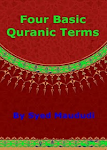Listen to Quran

The Holy Quran, the Ultimate Complete Software of Your Life
So you better Read it, Ponder over it, Understand it, and finally apply it in your life, because we have only one Chance.
QuranicAudio- Quranic Recitations
AbdulAzeez al-Ahmad
AbdulBari ath-Thubaity
AbdulBaset AbdulSamad [Mujawwad]
AbdulBaset AbdulSamad [Murattal]
AbdulBaset AbdulSamad [Warsh]
Abdullah Ali Jabir
Abdullah Ali Jabir [Studio]
Abdullah Awad al-Juhani
Abdullah Basfar
Abdullah Khayat
AbdulMuhsin al-Qasim
AbdulWadud Haneef
Abdur-Rahman as-Sudais
Abdur-Rashid Sufi [Khalaf]
Abdur-Rashid Sufi [Soosi]
Abdur-Razaq bin Abtan al-Dulaimi [Mujawwad]
Abu Bakr al-Shatri
Adel Kalbani
Ahmed ibn Ali al-Ajmy
Al-Hussayni Al-'Azazy (with Children)
Ali Abdur-Rahman al-Huthaify
Aziz Alili
Click here to See More Reciters
Quran Verses on Facebook
Free Holy Quran Explorer (HQE) 2.0
Al-Qur'an (Arabic text) and the transliteration
Two default english translations (Dr. M. Taqiud-Din & Dr. M. Khan and Yusuf Ali)
Plugable Al-Qur'an translation in 17 languages
Indonesian, Malay, Japanese, Turkish, Dutch, German, French, Russian, Spanish, Italian, Finnish, Bosnian, Swahili, Portuguese, Albanian, Poland, and Maranao
Sophisticated Al-Qur'an browse and search
Verses (Arabic) and translation text search using full text and keywords
Graphical presentation of inter-verse content similarity
Phonetical search of verses (beta version)
Tafsir view of a verse
Zekr-Download Free Quran for Windows

Full Featured Qur'an Made For Windows
Zekr Qur'an was made with coding made for Windows, giving it the feel of any other Windows application. It is fully featured with advanced searching, navigation, recitation, and commentary.
Fully Customizable
The backbone of Zekr is very generic, allowing customization in many ways. Customize the language, translation, recitation, commentary, and theme. Make Zekr perfect for you.
Free & Open Source
The Zekr project stands by the following principle: Never Profit Off The Prophet. All programs are and will always be Free and Open Source. That means that anyone can see and contribute to developing Zekr.
High Quality Color Coded Text Quran For iPhone
Quranic Dictionary - Grammar - Root Words For PC
1- Quranic Root Words Arabic English
2- Quranic Grammar Arabic English
3- Quranic Dictionary Arabic English
Quranic Downloads for iPhone
1- Quranic Arabic English Dictionary PDF -- Download on PC => Install on iPhone
2- Quranic Arabic Urdu Dictionary PDF -- Download on PC => Install on iPhone
3- Quranic Arabic English Grammar PDF -- Download on PC => Install on iPhone
4 Quranic Arabic English Root Words PDF--Download on PC => Install on iPhone
Life is a Test Specially for those Who Believe
Everything in this life is a test specially for the Believers. Happiness, Joy, Sorrow, Having Wealth and Children, Loss of Wealth and Childern, Even Life and Death are all a test from Our Lord in order to expose and filter the liars and the True Believers. Be aware that the blessings of Wealth is a great test at the same time, He the Almighty may test you to see how arrogant, self-centered, selfish you become by giving you lots of Wealth or prove to be generous and giving back to the poor and needy. As it happens to us that when Allah blesses one of us with some wealth and we drive around in our BMWs and Mercedezes looking down at others..... And the lack of wealth or poverty could as well be a test to see whether you despair and get into the business of unlawful earnings and lose your faith...Or He the Almighty may test you with Sorrow and loss of a dear one.... Read More
SATAN'S MEETING: Read even if you're busy
(Read even if you're busy)
Satan called a worldwide convention of demons. In his opening address he said,
"We can't keep Muslims from going to Mosque."
"We can't keep them from reading their Quran and knowing the truth."
"We can't even keep them from forming an intimate relationship with their Allah and his messenger Muhammad."
"Once they gain that connection with Allah, our power over them is broken."
"So let them go to their Mosques; let them have their covered dish dinners, BUT steal their time, so they don't have time to develop a relationship with Allah and his messenger Muhammad."
"This is what I want you to do," said the devil:
"Distract them from gaining hold of their Allah and maintaining that vital connection throughout their day!"
"How shall we do this?" his demons shouted.
"Keep them busy in the non-essentials of life and invent innumerable schemes to occupy their minds," he answered.
"Tempt them to spend, spend, spend, and borrow, borrow, borrow."
"Persuade the wives to go to work for long hours and the husbands to work 6-7 days each week, 10-12 hours a day, so they can afford their empty lifestyles."
"Keep them from spending time with their children."
.....Click Here to Read More...
Learn to Read the Holy Quran-Quran ITQAN
Part 1 contains:
Introductory to fathah vowelization, arabic alphabet from alif through za.A lesson of how to read al-quran using the ITQAN method. It is a powerful method that can make you read al-quran with proper tajweed and makhrajal huruf in a short of time
Quran ITQAN (part 2)
Part 2 contains: Introductory to fathah vowelization, arabic alphabet from sin through ghain.
Quran ITQAN (part 3)
Quran ITQAN (part 4)
Quran ITQAN (part 5)
Quran ITQAN (part 6)
How to "Recite the Quran" for Beginners
How to "Recite the Quran" for Beginners
8 - Recitation, translation & tafseer of Surat Al Baqara
(The Cow) Verses 21 - 25 Listen
7 - Recitation, translation & tafseer of Surat Al Baqara
(The Cow) Verses 16 - 20 Listen
6 - Surat Al Baqara (The Cow) Verses 12 - 15 Listen
5 - Surat Al Baqara (The Cow) Verses 10 & 11 Listen
4 - Surat Al Baqara (The Cow) Verses 8 &9 Listen
3 - Surat Al Baqara (The Cow) Verses 6 & 7 Listen
2 - Surat Al Baqara (The Cow) Verses 4 & 5 Listen
1 - Surat Al Baqara (The Cow) Verses 1, 2 & 3 Listen
Miraculous Nature of the Quran-by Omar Baloch
Proving the miraculous nature of the Quran through multiple angles, such as linguistic and scientific approaches.
Dajjal -Anti-Christ The False Messiah Imran Hosein
An incredible lecture on the Anti-Christ, deconstructing current geo-political events by Sheikh Imran Hosein
Quran Phonetics Exerciser
Quran Phonetics Exerciser
The Quranic Arabic Corpus
Welcome to the Quranic Arabic Corpus, an annotated linguistic resource which shows the Arabic grammar, syntax and morphology for each word in the Holy Quran. The corpus provides two levels of analysis: morphological annotation and a syntactic treebank.
Word-by-Word Quran - maps out the syntax of the entire Quran, with analysis and translation
Quranic Grammar - traditional Arabic grammar (إعراب) illustrated using dependency graphs

This is one of the best project of the Quran for all those lovers of the Word of Allah and May Allah reward and bless those who put all this together. It is an amazing work and very usefull. Please everyone visit the site and make use of it. All these types of quranic projects, whether it is Tafseer, Translations into almost every language, Transliteration, Grammer, Quranic Language and etc. leaves no possible reason not to learn the Book of Allah. It seems like Allah is providing the human beings with every possible means and access to reach to His Holy Book and so that we can not argue and reason and put forward lame reasons on the Day of Judgement that we did not have access to His Book due to various barriers of language or etc.
Click here to visit Quranic Arabic Corpus
Tafseer of Sûrah al-Fatihah
Introduction
Its Name
Its Revelation
Its Composition
The Virtues of Soorah al-Fatihah
The Ruling of Reciting al-Fatihah in Prayer
The Ruling of Isti`aadhah (Seeking Refuge)
Verse 1
Verse 2
Verse 3
Verse 4
Verse 5
Verse 6
Verse 7
Saying 'Aameen' After Reciting Fatihah
Al-Fatihah is a cure for the heart and body
Surah al-Faatihah Comprises the Meaning of the Entire Qur`aan
Surah al-Faatihah Comprises a Refutation of Many of the Principle Innovations
An Introduction to ’Uloom al-Qur'ân
Abu Ammar Yasir al-Qadhi
Chapter 1 from "An Introduction to the Sciences of the Qur'ân"
The knowledge of ’uloom al-Qu'rân, or 'The Sciences of the Qur'ân', deals with the knowledge of those sciences that have a direct bearing on the recitation, history, understanding and implementation of the Qur'ân. It is, therefore, a vast field of Islaamic scholarship, and one that if of primary importance.
Thus, for example, with regards to recitation, ’uloom al-Qu'rân deals with the science of pronunciation (tajweed), the different methodologies of reciting the Qur'ân (the qira'aat), the blessings of reciting the Qur'ân, and the etiquette of its recitation.
With regards to the history of the Qur'ân, ’uloom al-Qu'rân deals with the stages of revelation of the Qur'ân, the compilation of the Qur'ân, the art and history of writing the Qur'aanic script (rasm al-masaahif), and the preservation of the Qur'ân.
Arabic - The Language of the Qur’ân
Arabic - The Language of the Qur’ân
Shaykh Ahmed ibn ‘Abdullah al-Baatilee
The Arabic language is the language of the Noble Qur’ân, and with it, the Qur’ân was revealed upon the seal of the Messengers, so attention to the Arabic language is to have attention to the Book of Allâh the Most High and the studying and the practising of it helps in the understanding of the Noble Book of Allâh and the narration of the master of the Prophets, Muhammad (Peace be upon him). It is also the language of our esteemed Islamic law (As-Sharee’ah), so when we defend it we are not proceeding on a path of nationalism or racism or culturalism, but in fact we are defending the language of our religion (way of life) and it is the cloak of our Islamic Civilisation.
....Click here to Read More....
Quranic Supplications ( Duas)
- (رَبَّنَا آتِنَا فِي الدُّنْيَا حَسَنَةً وَفِي الآخِرَةِ حَسَنَةً وَقِنَا عَذَابَ النَّارِ) [البقرة/201]
"Our Lord! Give us in this world that which is good and in the Hereafter that which is good, and save us from the torment of the Fire!" (2/201)
2- (رَبَّنَا أَفْرِغْ عَلَيْنَا صَبْرًا وَثَبِّتْ أَقْدَامَنَا وَانصُرْنَا عَلَى الْقَوْمِ الْكَافِرِينَ) [البقرة/250]
"Our Lord! Pour forth on us patience and make us victorious over the disbelieving people." (2/250)
3- (رَبَّنَا لاَ تُؤَاخِذْنَا إِن نَّسِينَا أَوْ أَخْطَأْنَا رَبَّنَا وَلاَ تَحْمِلْ عَلَيْنَا إِصْرًا كَمَا حَمَلْتَهُ عَلَى الَّذِينَ مِن قَبْلِنَا رَبَّنَا وَلاَ تُحَمِّلْنَا مَا لاَ طَاقَةَ لَنَا بِهِ وَاعْفُ عَنَّا وَاغْفِرْ لَنَا وَارْحَمْنَا أَنتَ مَوْلاَنَا فَانصُرْنَا عَلَى الْقَوْمِ الْكَافِرِينَ) [البقرة/286]
"Our Lord! Put not on us a burden greater than we have strength to bear. Pardon us and grant us Forgiveness. Have mercy on us. You are our Maula (Patron, Supporter and Protector, etc.) and give us victory over the disbelieving people." (2/286)
Madinah Arabic Language Course Book 1 and Book 2
Part 01 Part 02 Part 03a Part 03b Part 04 Part 05a Part 05b Part 06a Part 06b Part 07a Part 07b Part 08a Part 08b Part 09a Part 09b
Madinah Arabic Language Course - Book 2: Total 16 DVDs
Why and How to Learn Arabic - Nouman Ali Khan
A Great and Very interesting Lecture!I am sure you will benefit from it!!
Usage of “Fear” in the Qur’an
The Oxford dictionary defines fear as:
• noun 1 an unpleasant emotion caused by the threat of danger, pain, or harm. 2 the likelihood of something unwelcome happening.
• verb 1 be afraid of. 2 (fear for) be anxious about. 3 archaic regard (God) with reverence and awe
We have a few words to describe this emotion in English such as: scared, anxiety, terror, panic, and bewilderment. All of these words carry the same meaning and are nearly synonymous to one another.
Arabic, on the other hand, has a considerable amount of words to describe fear; each with a different detail and connotation. The Qur’an alone has more than 10 words for fear!
Allah ta’ala says:
وَأَمَّا مَنْ خَافَ مَقَامَ رَبِّهِ وَنَهَى النَّفْسَ عَنِ الْهَوَىٰ
“But as for him who feared (khawf) standing before his Lord, and restrained himself from impure evil desires and lusts.” (79:40)
The Believer has a fear of something that is manifest and real, which is captured in this ayah by the use of khawf. Allah azza wa jal did not say in this ayah that the person fears their Lord, but fears the standing before his Lord, and as a result of this fear, he protected himself from lusts and desires.
On the other hand, Allah says about the disbelievers:
لَّا يَخَافُونَ الْآخِرَةَ
“They do not fear (khawf) the hereafter.” (74:53)
......Click Here to read more.....
Characteristics of the Qur’an
عن النواس بن سمعان رضي الله عنه قال: سمعت رسول الله صلى الله عليه وسلم يقول:
”يؤتى يوم القيامة بالقرآن وأهله الذين كانو يعملون به في الدنيا تقدمه سورة البقرة وآل عمران تحاجان عن صاحبهما ”
رواه مسلم
An-Nawwas bin Sam`an (May Allah be pleased with him) reported: I heard the Messenger of Allah sal Allahu alayhi wa sallam saying, “The Qur’an and its people who applied it, will be brought on the Day of Resurrection preceded with Surat Al-Baqarah and Surat Al-`Imran arguing on behalf of their companions.” (Muslim)
May Allah ta’ala make us amongst the people of the Qur’an, Ameen.
This page is dedicated to studying and learning the Characteristics of the Qur’an. Just as we cannot love Allah, His Messenger or His deen without having knowledge of them, we also cannot love the Book of Allah or act upon it without knowing its qualities.
Qur’anic Characteristic #1:
Allahumma ija’lnaa min ashaabil Qur’an, O Allah, make us among the companions of the Qur’an. Ameen.
The first characteristic of the Qur’an that we will share is: Al Hakeem.
Allah ta’ala says in Surah Yaseen ayah 2:
وَالْقُرْآنِ الْحَكِيمِ
By the Qur’an, full of wisdom!
....Click Here To Read More....
THE LANGUAGE OF ISLAM: The Importance of Learning Arabic
....Click Here to Read More...
Everyone Needs Guidance
....Click Here To Read More...
Quranic Gem #2
Bismillah walhamdulillah
During the second night of class with br Nouman, he shared with us a gem on the precision of the Qur’an.
Here it is:
Allah ta’ala says in suratul Baqarah ayah 257:
اللَّهُ وَلِيُّ الَّذِينَ آمَنُوا يُخْرِجُهُمْ مِنَ الظُّلُمَاتِ إِلَى النُّورِ
‘Allah is the Wali of those who believe, He brings take them from the darknesses into the light.’
وَالَّذِينَ كَفَرُوا أَوْلِيَاؤُهُمُ الطَّاغُوتُ يُخْرِجُونَهُمْ مِنَ النُّورِ إِلَى الظُّلُمَاتِ
‘and those who disblieve their Awliyaa’ are taghoot, they bring them out of the light to darknesses.’
Wali is a special type of friend, who expresses the will to help to you and support you. A wali is a friend that you turn to for help, protection and support. The wali is the primary in the relationship, they are the dominant party. Take for example, if a father is the wali to his son, then the father is the primary in the relationship.
Allah ta’ala says in the beginning of the ayah that He is the Wali for the believers. Those who disbelieve have Taghoot (anything and everything that is worshipped besides Allah) as their Awliyaa (plural of wali).
There are two comparisons taking place in this verse: firstly, the believers and those who disbelieve, and secondly, Allah azza wa jal and taghoot. Looking at the verse again, we see that there is a different arrangement for each comparison: when Allah ta’ala says He is the Wali of the believers, He comes first. But for those who disbelieve, their wali is mentioned last.
Why is the arrangment different?
Allah ta’ala is being ‘compared’ to taghoot, yet: laysa kamithlihi shayy, there is NOTHING like Him, NOTHING can be compared to Him. These taghoot do not deserve to be mentioned in the same place as Allah azza wa jal was mentioned. They do not deserve to be mentioned in even the same sentence.
Allah ta’ala says in Surat Muhammad ayah 11,
ذَٰلِكَ بِأَنَّ اللَّهَ مَوْلَى الَّذِينَ آمَنُوا وَأَنَّ الْكَافِرِينَ لَا مَوْلَىٰ لَهُمْ
‘That is because certainly Allah is the Mawlaa of those who believe, and indeed the disbelievers have no Mawlaa.’
Mawlaa is more than a Wali; a Mawlaa is someone who can protect you and actually does so–they are protecting you, while a Wali is someone who is willing to protect you.
When it came to Wali, both the believers and disbelievers had one, but when it comes to Mawlaa–someone who CAN protect you–they have no Mawlaa.
SubhanAllah.
Allahumma faqihnaa fid deen, O Allah grant us understanding of the deen, Ameen.
from → Arabic, Bayyinah Gems, Gems, Good Things
Gems of the Quran
by Amatullah
Bismillah
Alhamdulillah, I’ve been blessed to take the Arabic 201 class with Bayyinah Institute for the second time and mashaAllah br Nouman has this sunnah of taking 10 minutes at the end of each session to share a literary gem of the Qur’an.
InshaAllah I will be posting all nine that he will share with us; one for each day of the class session.
Here is tonight’s gem:
In Surat Saba, ayah two, Allah azza wa jal says:
يَعْلَمُ مَا يَلِجُ فِي الْأَرْضِ وَمَا يَخْرُجُ مِنْهَا وَمَا يَنْزِلُ مِنَ السَّمَاءِ وَمَا يَعْرُجُ فِيهَا ۚ وَهُوَ الرَّحِيمُ الْغَفُورُ
He knows that which goes into the earth and that which comes forth from it, and that which descend from the heaven and that which ascends to it. And He is Ar Raheem, Al Ghafoor.
In the Qur’an, Allah ta’ala mentions more than 70 times that He is Al Ghafoorur Raheem. This ayah above is the only instance in the whole Qur’an that the order is reversed: Ar Raheemul Ghafoor.
Why?
Imam ibnul Qayyim states that if you study ‘ilm (knowledge) in the Qur’an, you’ll find that Allah ta’ala mentions rahmah (mercy) with it. Here are some examples:
رَبَّنَا وَسِعْتَ كُلَّ شَيْءٍ رَّحْمَةً وَعِلْمًا
“Our Lord! You comprehend all things in mercy and knowledge“ (40:7)
The duaa of those well-grounded in knowledge (ar-raasikhoon) is:
رَبَّنَا لَا تُزِغْ قُلُوبَنَا بَعْدَ إِذْ هَدَيْتَنَا وَهَبْ لَنَا مِنْ لَدُنْكَ رَحْمَةً
(They say): “Our Lord! Let not our hearts deviate (from the truth) after You have guided us, and grant us mercy from You. Truly, You are the Bestower.”
Allah ta’ala begins this ayah from surah Saba with يَعْلَمُ, He knows, which as we’ll see below, has a direct connection with why Raheem is mentioned first.
When we examine Ghafoor in the Qur’an, or maghfirah (forgiveness), we notice that it is paired with humans. Here is an example:
Nuh alayhi salaam to his disbelieving nation said:
فَقُلْتُ اسْتَغْفِرُوا رَبَّكُمْ إِنَّهُ كَانَ غَفَّارًا
“I said (to them): Ask forgiveness from your Lord; Verily, He is Oft-Forgiving” (71:10)
In this ayah from surah Saba, do we see a direct address to humans? There is mention of the earth, what comes from the sky, what ascends…Humans are mentioned indirectly, and by examining this indirect address, we can see why Raheem is mentioned before Ghafoor.
How so?
يَعْلَمُ مَا يَلِجُ فِي الْأَرْضِ He knows that which goes into the earth: We place seeds into the earth, but furthermore, we will also go into the earth one day. We will need the rahmah (Mercy) of Ar Raheem when we go into the earth.
وَمَا يَخْرُجُ مِنْهَا And that which comes from it: The plant grows from the earth, but furthermore, we will one day be resurrected from the earth. We ask for and need the maghfirah (forgiveness) of Al Ghafoor when we come out of the earth.
وَمَا يَنْزِلُ مِنَ السَّمَاءِ and that which descends from the heavens: Rain is a rahmah (mercy) upon us, wahy (revelation) comes from the sky and is also a rahmah upon us, our rizq (provision) comes from the sky which is also a rahmah upon us.
وَمَا يَعْرُجُ فِيهَا and that which ascends to it (the sky): What ascends to the sky? Our duaa, our souls, and deeds. What do we need in all three of these instances from Allah ta’ala? Maghfirah (forgiveness), for our duaas and deeds to be accepted, and our souls to be forgiven.
Then Allah ta’ala ends the ayah with the subject on this gem: وَهُوَ الرَّحِيمُ الْغَفُورُ And He is the The Especially Merciful, the Most Forgiving.
Each part of this ayah connects with these two Names of Allah, in the order that they appear.
SubhanAllah.
The most common “criticsm” of the Qur’an is that the verses repeat too much and the ayaat are all the same in a lot of surahs. But when we pay attention to the Qur’an, when we truly ponder, then we see that there is actually little repitition. These are not ordinary words, they are Divine Words that have a profound wisdom.
In speech, there are two parts:
1- Content: what you say. The Qur’an has Divine content.
2-Style: how you say it. The Qur’an presents this content in a profound and miraculous style.
Humans are not capable of having both content and style constantly. Take for example the famous quotes we all know, “I have a dream” or “there is nothing to fear but fear itself”. These quotes came from speeches, but the only part we know or remember are those few words.
This Qur’an, these blessed words of Allah azza wa jal, constantly keeps both content and style and by pondering over these verses in a humble manner, we can taste a few drops of these wisdoms.
May Allah azza wa jal make us companions of this book, Ameen.
from → Arabic, Awesomeness, Bayyinah Gems, Gems, Good Things, Qur'an, SubhanAllah
Taken from: http://tayyibaat.wordpress.com/
Here are some More Quranic Gems for You to benefit from:
Session One: Mercy and Forgiveness
Session Three: Oaths in the Qur’an
Session Four: Syntax in the Qur’an
Session Five: The Precise Selection
Session Six: The Miraculous Ayah
Session Seven: Bonds of Brotherhood
Session Seven pt 2: The Most Noble of Tasks
Session Eight: Dialogue in the Qur’an
Session Eight pt 2: Weakening and Empowering a Statement
Historical Quran Manuscripts

Mushaf
Scribed in 984 A.H. ,Write Type Normal, Scribed by Anonymous
Source : Gift
A possession of : Library of King ‘Abd el-Aziz, al-Madinah al-Munawwarah
Mushaf , Gazelle skin
Scribed in 678 A.H. ,Write Type Normal, Scribed by ‘Abdullah Muhammad bin Saad bin ‘Aly bin Salem al-
Source : None
A possession of : Library of King ‘Abd el-Aziz, al-Madinah al-Munawwarah
The Holy Quran, the Ultimate Complete Software of Your Life





























































